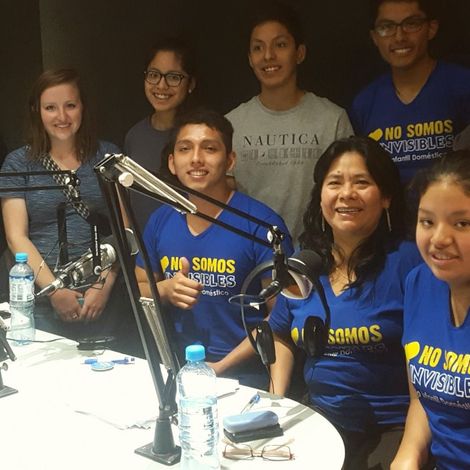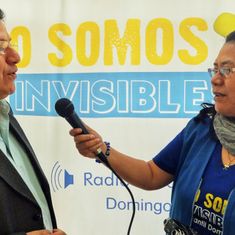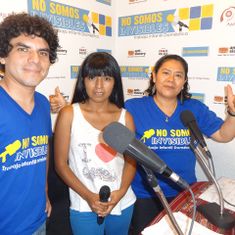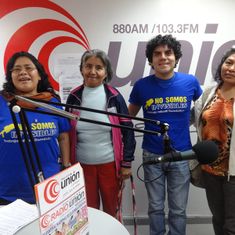No Somos Invisibles: We are Not Invisible





No Somos Invisibles (NSI), or "We are Not Invisible," is a weekly radio program, founded in 2012, that reaches 20,000 listeners throughout Peruvian society, the majority of whom are based in Lima. The program's purpose is to ensure that women and girls, marginalized due to their place of origin, accent, skin hue, race, ethnicity, poverty, gender, sex, and social station, are able to escape social invisibility and be heard. The program's target audience is domestic workers and their families, as it strongly advocates that girls doing child domestic work return to school. In Peru, domestic work is not recognized as a dignified profession, and women are often treated like slaves. NSI is a powerful advocate for those living on Lima's urban periphery, and women trapped working in houses. Through the airwaves, and increasingly through social media, No Somos Invisibles builds a community for women whose work is physically and psychologically isolating.
Every week, the program focuses on a different topic, hosting the voices and opinions of girl laborers, adult domestic workers, psychologists, historians, and sociologists, among other civil society servants. The topic of each program covers subjects such as labor rights in Peru, child nutrition, consequences of child domestic work, the importance of a written working contract, sexual bullying in the workplace, Lima's history, racial identity, and the importance of valuing Pachamama (Mother Earth). Listeners are able to call the program to make their voices heard, while prepared recordings from women and girls who do not have telephone access are gathered the week before. These are just a few examples of past programs. A more complete list can be found here: http://gruporedes.org/radioblog/
NSI raises awareness about child domestic work and human trafficking, while advocating for gender equality, and just and dignified work for all. It is an essential voice in Peruvian society. It is a program of AGTR.